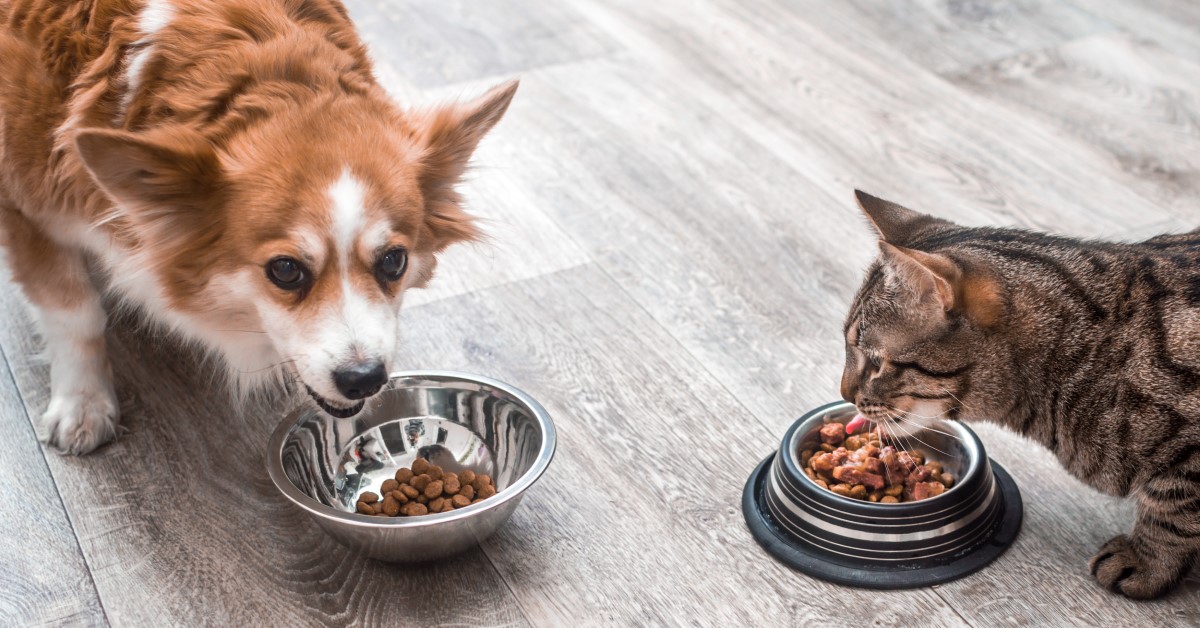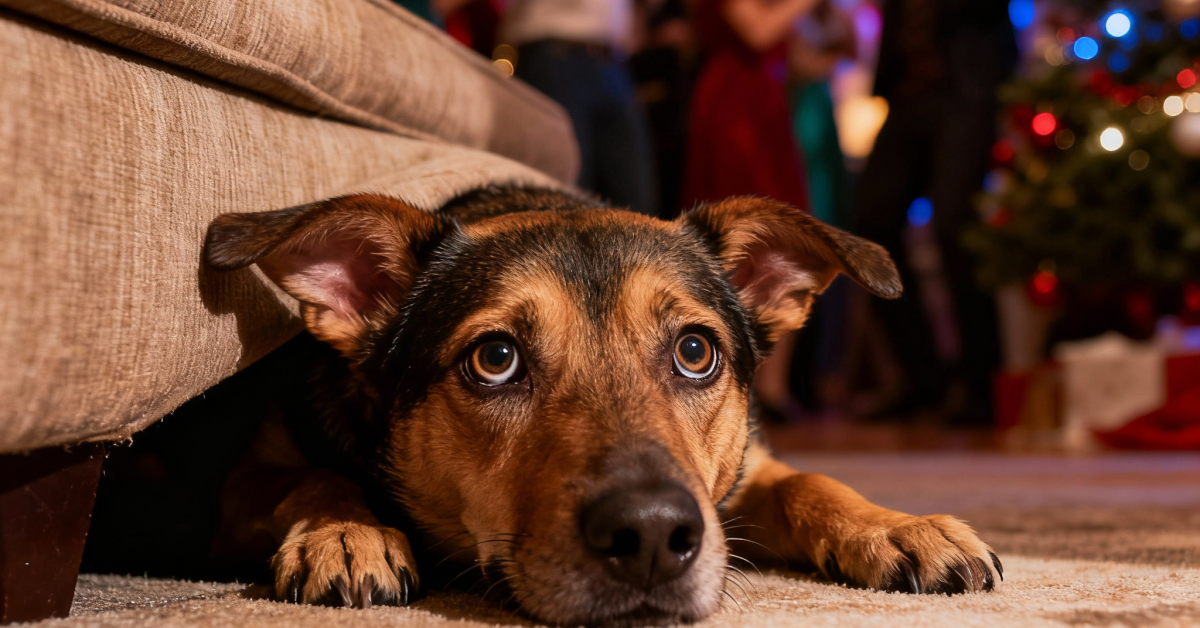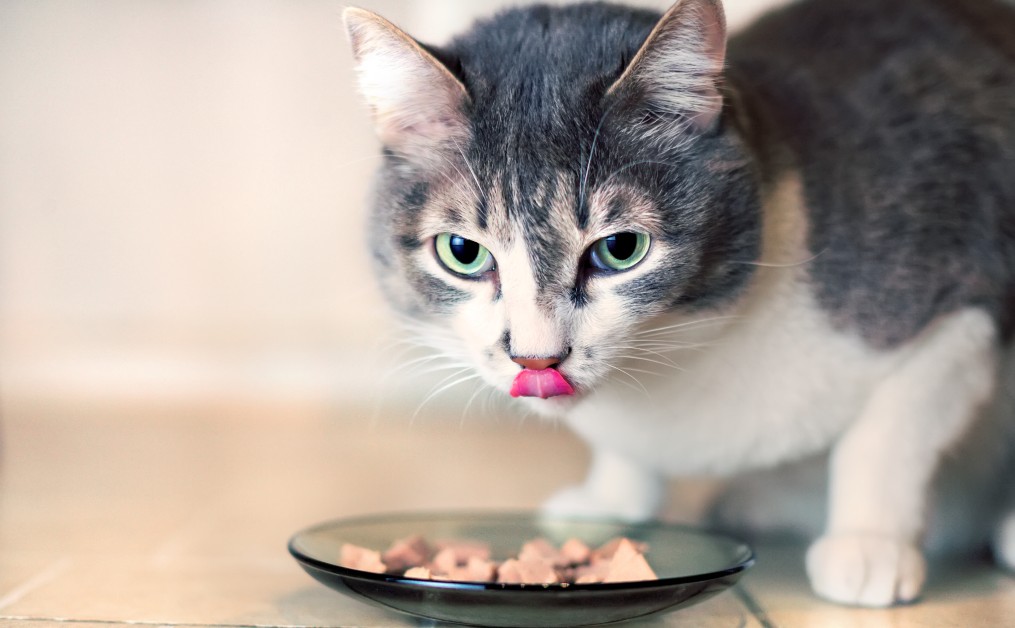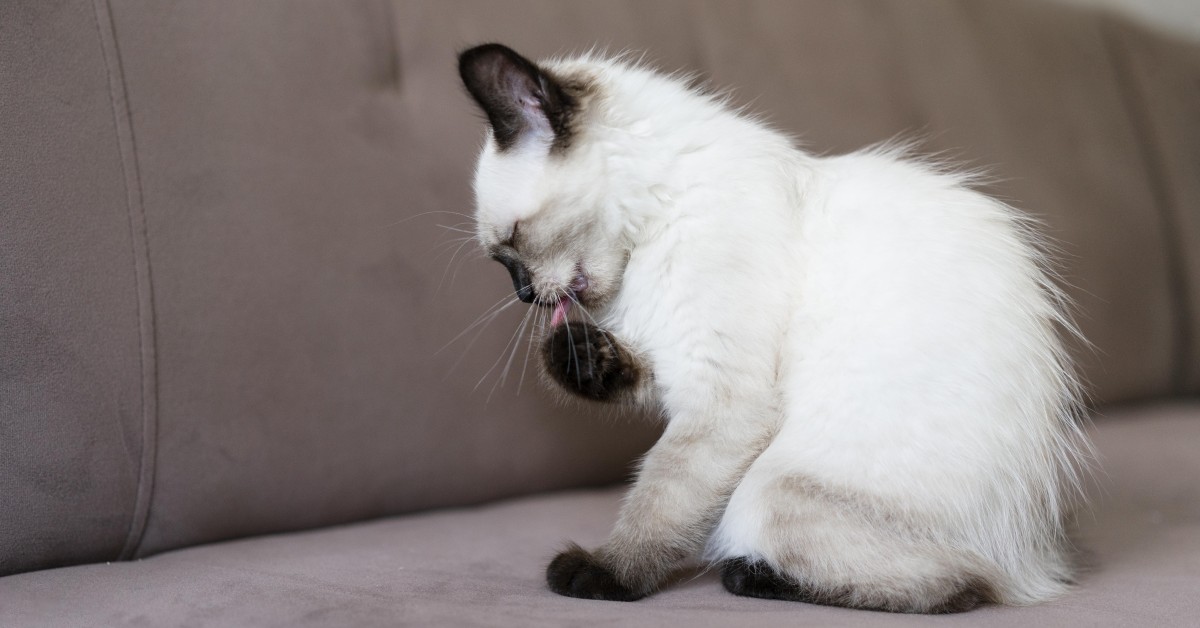Dog Nutrition Versus Cat Nutrition
A comparison of the dietary differences between cats and dogs reveals unique nutritional and caloric needs.

Like their human companions, cats and dogs have unique nutritional needs to maintain good health and wellness. While everyone knows that cat food is sold separately from dog food, have you ever stopped to think about the real differences between them? Not only do dogs require different amounts of food than cats, but they also require different nutrients. Learn more about the similarities and differences between cat and dog nutrition.
Nutritional Differences Between Cats and Dogs
Calories
One difference between cat and dog nutrition deals with calorie intake. According to the Association for Pet Obesity Prevention, the approximate daily caloric needs for the average 10 lb. cat is between 180 and 200 calories. A dog of the same weight requires between 200 and 275 calories.
Omnivores vs. Carnivore
Another big difference between dog and cat nutrition is how these domestic pets are labeled. Cats are classified as obligate carnivores, meaning they must consume meat to thrive. Although cats are capable of eating other foods, such as grains and fruits, their diet must include meat. This differs from true carnivores that are unable to effectively digest vegetative matter.
There has been an ongoing debate regarding whether or not dogs are carnivores or omnivores. While many veterinarians believe that dogs are carnivores, some scientists believe they may be omnivores as they can survive on plants if necessary. However, they prefer meat so many people classify dogs as scavenging carnivores, which is the middle ground between a carnivore and an omnivore.
Nutrients
Cats and dogs share many of the same nutritional needs. Here’s a breakdown of what each type of pet needs to stay healthy:
Dogs:
- Fats – Dogs need fat to regulate body temperature, protect their internal organs, and maintain a healthy nervous system. If fat levels drop too low, some dogs may experience dull coats and dry, itchy skin. However, not all types of fat are good for dogs. It’s important to choose small amounts of quality fats.
- Carbs – Carbohydrates are a dog’s primary source of fuel and contribute to energy stores in the body. Carbs like grains, brown rice, barley, potatoes, and whole corn are commonly found in kibble.
- Proteins – Proteins provide dogs with energy and help maintain the skin, muscles, bones, and nails. As the body is unable to store protein, it needs a constant supply. Dogs require 22 amino acids to survive, which can be found in various protein sources.
- Vitamins – Essential vitamins play a key role in balancing a dog’s diet. Dogs require vitamin A for immune system health, vitamin B12 for a healthy nervous system, vitamin D to regulate phosphorus and calcium levels, and vitamins C and E to act as antioxidants.
- Minerals – Similar to vitamins, dogs require minerals for many functions, such as hormone regulation, bone formation, and muscle and nerve function. Iron helps carry oxygen through the body, calcium makes up healthy bones, zinc supports proper wound healing, and selenium delivers antioxidant support.
Cats:
- Animal Proteins – As carnivores, cats require animal proteins to obtain the essential amino acids they need for good health. Proteins play a critical role in building healthy muscles, blood, skin, hair, tendons, and cartilage. Animal proteins can come from various sources, such as chicken, turkey, or beef, as well as eggs and fish.
- Fats – Cats rely on animal fats as their main source of energy. Ideally, cats should consume “good” fats that are naturally present in meat and fish. Adequate amounts of fat help cats maintain body temperature, absorb essential vitamins, and generate energy.
- Carbs – While carbohydrates are not considered essential nutrients for either cats or dogs, they can be part of a healthy diet. Carbohydrates provide a readily available and highly digestive energy source. However, cats should avoid certain types of carbs, such as uncooked soybeans and legumes.
- Vitamins – Cats generally take in essential vitamins that are synthesized from raw materials found in their food. Vitamin A is essential for healthy vision, vitamin D aids in the proper functioning of the nerves, bones, and muscles, and vitamin B1 aids in healthy metabolism. Cats also require vitamins B2, B3, and B6.
- Minerals – Minerals are required in cats' diets to help with enzyme formation, nutrient utilization, pH balance, and oxygen transportation. Some minerals that cats need to stay healthy include calcium, iron, sodium, magnesium, and chloride.
Can Cats Eat Dog Food - and Vice Versa?
Some of the most common questions asked by pet owners are whether dogs can eat cat food and if cats can eat dog food. The simple answer is no. While the opposing animal’s food can be quite appealing, it is not generally healthy for pets to eat another species’ food.
Dogs require a wider variety in their diet than cats, including a balance of fiber, protein, and nutrients. Eating cat food could result in nutritional imbalances, as well as possible stomach issues and obesity. Some cat foods contain high levels of vitamin D, which could be potentially fatal to dogs that consume large amounts.
Your cat may also be tempted to try your dog’s food, but it is not recommended. Most dog foods do not have an adequate amount of animal protein to satisfy cats. In addition, consuming dog food could cause digestive issues in cats.
If you are concerned about your pet’s nutritional needs or have questions about specific diets, reach out to your vet.
Ready to start saving money on pet wellness care?
Then take a look at Mint Wellness, the pet wellness plan that provides fast reimbursement on routine pet care. Save on vaccinations, wellness exams, preventatives, dental, and more!
Learn More


